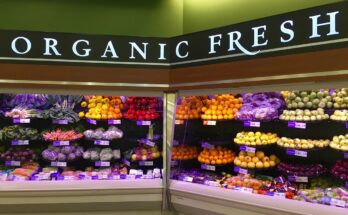Are you curious about how automation is revolutionizing the food processing industry?
With advancements in technology, automation has become an integral part of this sector, transforming the way food is processed, packaged, and delivered to consumers.
From increased efficiency and productivity to improved food safety measures, automation is playing a pivotal role in shaping the future of food processing.
By adopting automated systems, food processing companies are able to streamline their production processes, resulting in faster and more consistent outputs.
Moreover, automation allows for better control and monitoring of food safety measures, minimizing the risk of contamination and ensuring high-quality products.
Not only does automation lead to cost reduction, but it also optimizes the use of resources, making the food processing industry more sustainable.
In this article, we will explore the various benefits of automation in the food processing industry, as well as its future implications and potential challenges.
Increased Efficiency and Productivity
Automation has revolutionized the food processing industry, dramatically boosting efficiency and productivity, ensuring that we can meet the growing demands for food while minimizing waste.
With the introduction of automated systems, tasks that were once time-consuming and labor-intensive can now be completed in a fraction of the time. Machines can perform repetitive tasks quickly and accurately, reducing the need for manual labor and allowing workers to focus on more complex tasks.
This increased efficiency has also led to higher productivity levels, as machines can process larger quantities of food in a shorter amount of time. By streamlining processes and minimizing human error, automation has become a crucial tool in maximizing output while maintaining quality standards in the food processing industry.
Improved Food Safety Measures
With the implementation of advanced technology, the food processing sector has witnessed significant enhancements in ensuring the safety of our meals. Automation plays a crucial role in improving food safety measures.
Automated systems can detect and eliminate potential contaminants, such as foreign objects or bacteria, more efficiently than manual inspections. These systems use advanced sensors and algorithms to identify any abnormalities and take immediate action to prevent contaminated products from reaching consumers.
Additionally, automation reduces the risk of human error, as machines can consistently follow strict protocols and guidelines. This not only enhances the overall safety of the food processing industry but also increases consumer confidence in the products they purchase.
By embracing automation, food processors can guarantee that the meals we consume are safe and of the highest quality.
Streamlined Production Processes
By incorporating advanced technology, streamlined production processes in the food sector have become more efficient and reliable, ensuring a higher quality and safer end product for consumers.
Automation plays a crucial role in this transformation, enabling food processing companies to optimize their operations. With automated systems, tasks such as sorting, packaging, and labeling can be done quickly and accurately, reducing human error and increasing productivity.
Moreover, automation allows for better control over the production line, ensuring consistency and uniformity in the final products. By eliminating manual labor in repetitive tasks, companies can allocate their workforce to more complex and value-added activities. This not only improves overall efficiency but also boosts employee satisfaction.
In conclusion, streamlined production processes, driven by automation, drive the food processing industry towards higher levels of productivity, quality, and safety.
Cost Reduction and Resource Optimization
Incorporating advanced technology allows for cost reduction and optimization of resources in the food sector, leading to improved efficiency and increased profitability. Automation plays a crucial role in achieving these goals by streamlining processes and eliminating manual labor.
By automating tasks such as sorting, packaging, and labeling, companies can reduce labor costs and minimize human error. Additionally, automation helps optimize resource utilization by precisely controlling factors such as temperature, humidity, and ingredient quantities. This not only ensures consistent product quality but also minimizes waste and maximizes yield.
Furthermore, automation allows for real-time monitoring and data analysis, enabling companies to identify bottlenecks, streamline operations, and make informed decisions for further cost reduction and resource optimization.
By embracing automation, the food processing industry can achieve significant savings while enhancing productivity and profitability.
Future Implications and Potential Challenges
The integration of advanced technology in the food sector has the potential to revolutionize operations and pose unique challenges for businesses.
As automation continues to expand in the food processing industry, it’s important to consider the future implications and potential challenges it may bring.

One of the main concerns is the displacement of human workers. While automation can increase efficiency and productivity, it may also lead to job losses and a shift in the skills required for employment.
Additionally, there is a need to address the issue of cybersecurity. With increased reliance on technology, companies must ensure the safety and protection of their data from potential cyber threats.
Furthermore, the cost of implementing and maintaining automated systems can be a significant challenge for businesses, especially small and medium-sized enterprises.
It’s crucial for companies to carefully assess the long-term benefits and potential drawbacks of automation in order to navigate these challenges successfully.
Conclusion
Automation in the food processing industry offers numerous benefits. It enhances efficiency and productivity, improves food safety measures, and streamlines production processes. By automating tasks, companies can reduce costs and optimize resources.
However, as with any technological advancement, there may be challenges and potential implications in the future. Nevertheless, the overall impact of automation in the food processing industry is undeniably positive, leading to increased productivity and improved food safety standards.
Embracing automation in this sector is crucial for companies to stay competitive and meet the demands of a rapidly evolving industry.




